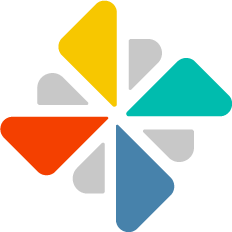RESOURCES
RESOURCES
Our program is based in the thinking of the brightest people in the spaces of childhood development and neuroscience. We’ve pulled resources from all over the world and want to share them with you. Read, watch, and listen to some of the below.
Let’s teach mastery — not test scores
In this TED Talk, Sal Khan, founder of Khan Academy, discusses mastery based learning – the practice of allowing learners to learn at their own pace until they have fully mastered a concept. Khan compares the practice of forcing learners to progress with only 70% or 80% understanding of a concept to building a second floor onto a house with an unfinished foundation. Eventually, the structure is so unstable, it may collapse.
It’s time to rethink how we ARE educating our children
Stecher explores the problematic fact that many of today’s schools still utilize the same factory-style model developed during the Industrial Era. Stecher offers thoughtful suggestions for developing a school that inspires curiosity and exploration through hands-on learning.
The End of Average
In this short video, the much quoted Todd Rose provokes educators to challenge the myth of “average.” Through his research, Rose concludes that an average person simply does not exist. Yet, we continue to treat students as if there is an average student, by requiring students to learn at the same time, at the same pace, and in the same way.
Daring Classrooms
In this inspiring talk at SXSW EDU, author and motivational speaker Brené Brown deep dives into the topics of vulnerability in the classroom. “Learning is inherently vulnerable,” states Brown.
Opal School Online
The website for Opal School, an elementary school inspired by Reggio Emilia, contains dozens of videos, readings, workshops and additional resources on facilitating playful inquiry in the classroom.
Mindset Works
Dr. Dweck is a world-renowned researcher, whose work on growth mindset has transformed educational practices across the globe. Dweck’s offers a plethora of scientific research, resources, and tools to help young people understand malleable intelligence and believe in their abilities to constantly learn and grow.
Want to get your kids into college? Let them play.
Play is an essential part of childhood. Play nurtures children’s development of creativity, logic, language, empathy, curiosity and so much more. The benefits of play are not just limited to childhood, however. In this article, Dr. Nicholas Christakis and Erika Christakis discuss the long-term impacts of play based on their work with undergraduates at Harvard College.
Opening Minds: Using Language to Change Lives
It should not come as a surprise that the language we use when speaking with children has an impact on them. Johnston explores just how significant of an impact this actually is. Even the slightest nuances in language can actually frame and shape a child’s entire world view. This book is a must read for anyone who works with young people.
Motivation by design
In this TED Talk, Phoenix Modern founder and Lead Director, Andrew Collins, challenges us to redesign school and take advantage of what naturally motivates us to help our children live flourishing lives.
Design Schools for Today — not for Tomorrow
“We have to prepare children for jobs that do not yet exist today.” This is a common talking point in the educational community. Programs promoting 21st Century Skills have become increasingly popular. Dr. Raab states that meeting children’s core psychological needs is the key to their future success – not early acquisition of technical skills that may or may not prove useful in an unknown future.
Unschooling Rules
This straightforward read offers fifty-five ways to unlearn everything we have come to expect from “school.” Inspirational and refreshing, Aldrich offers bold suggestions for reimagining education.
Young Investigators: The Project Approach
Lilian Katz’s approach to planning authentic projects takes the “school project” to a whole new level. In her book, Katz shares her method for planning projects that build off of student’s interests and curiosities and grow and develop as the students investigate and explore. This is a great read for educators and parents alike, because it helps us as adults to develop rich and complex learning experiences in partnership with young learners.
Contact Us
discover@phoenixmodern.org
Student Academic Records
Contact our Registrar
records@phoenixmodern.org
Our Campus
200 E. Mitchell Dr.
Phoenix, AZ 85012
Contact Us
Email Us

